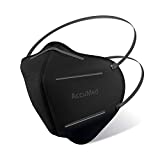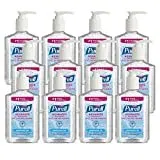- The Johnson & Johnson coronavirus vaccine candidate can prevent COVID-19 complications and death, as the Phase 3 trial’s conclusions have shown.
- The drugs require a single shot and can be stored at regular refrigerator temperatures. But the J&J COVID-19 vaccine isn’t as effective as the mRNA drugs from Pfizer/BioNTech and Moderna, which could be seen as a disadvantage.
- Dr. Anthony Fauci said in an interview that these comparisons do more harm than good, and he explained this particular vaccine is so important.
Johnson & Johnson announced on Friday the results of its coronavirus vaccine Phase 3 trial, revealing to the world that the drug can prevent severe COVID-19 that leads to hospitalization and death. The vaccine is safe to use and had no serious side-effects during the massive Phase 3 trial. The company also said that the drug will work against the B.1.351 South African mutation, the only new coronavirus strain that has been shown to evade some drugs that are already in use.
J&J’s vaccine does have a few advantages that make it a unique proposition over competitors. It uses a single-shot regimen, with this vaccine candidate being the only one that doesn’t require a booster shot three to four weeks after the first jab. Unlike the mRNA vaccines from Pfizer/BioNTech and Moderna, the Johnson & Johnson vaccine can also be stared at normal refrigeration temperatures, which means the logistics of transporting and storing the vaccine won’t be as complex.
The Johnson & Johnson candidate doesn’t offer efficacy that can match the Moderna and BioNTech drugs. But that should absolutely not be a problem, Dr. Anthony Fauci said in an interview where he explained why the new vaccine is so important for COVID-19 management in the US and other countries.
Fauci told Mid American Herald on Friday that the J&J candidate and the others will reduce the stress on the US health care system. “If we can alleviate that, that is really important — not only with this candidate but the others that have already gotten the” Emergency Use Authorization (EUA), he said.
Dr. Fauci pointed out the obvious advantages of the drug. “A vaccine that’s inexpensive, that’s a single dose, and that has no cold chain requirements — that’s pretty good,” Fauci said while addressing the “elephant” in the room.
The drug’s efficacy — 66% globally and 85% effective against severe disease — pales compared to the 95% efficacy that the Pfizer and Moderna drug achieved. Fauci pointed out that the J&J results would look even better without the obvious comparison.
“You know what the problem is? If this were out there and we didn’t have the Moderna 94-95% …. We would have said wow, a 72% effective vaccine that’s even more effective against severe disease is really terrific,” Fauci said. “But now we’re always judging it against 94 to 95%. Having said that, this is a vaccine that could have use, particularly in developing countries, to keep people out of the hospital. It has a very good efficacy against severe disease.”
The drug was 72% in the group of US Phase 3 trial volunteers.
In the months preceding the EUA received by the Pfizer and Moderna drugs, Fauci and other health experts said they were hoping for vaccine efficacy to reach 75%, saying that the higher the figure, the better it would be. The FDA’s threshold for emergency approval was set at 50%. Flu vaccine effectiveness fluctuates because of the highly mutagenic nature of the various viruses that cause influenza, with the 2019 drug version being just 45% effective. The flu, however, has other effective therapies that reduce the risk of death — not just a vaccine.
The Johnson & Johnson vaccine has one other immediate advantage over the others. The Phase 3 trial included patients infected with at least one of the troubling new strains. These are more infectious, and the South African strain is the only one that can evade coronavirus antibodies. It’s unclear how effective the other vaccines are against this strain, with the J&J drug showing 57% efficacy in South Africa, where 95% of the COVID-19 cases in the trial were caused by B.1.351.
Further addressing efficacy comparisons, Fauci also noted Jonson & Johnson’s research into a two-dose regimen. The company plans to see whether a two-shot regimen can further boost efficacy. “Let’s see what that shows. It could possibly bring it up to 90%,” the health expert said. “Heck, if you got 72 with a single dose, you would think you would do pretty good with a boost.”
The US government already has a contract to purchase 100 million vaccine doses from Johnson & Johnson. The FDA’s EUA decision should be announced by the end of February.



Chris Smith started writing about gadgets as a hobby, and before he knew it he was sharing his views on tech stuff with readers around the world. Whenever he’s not writing about gadgets he miserably fails to stay away from them, although he desperately tries. But that’s not necessarily a bad thing.



